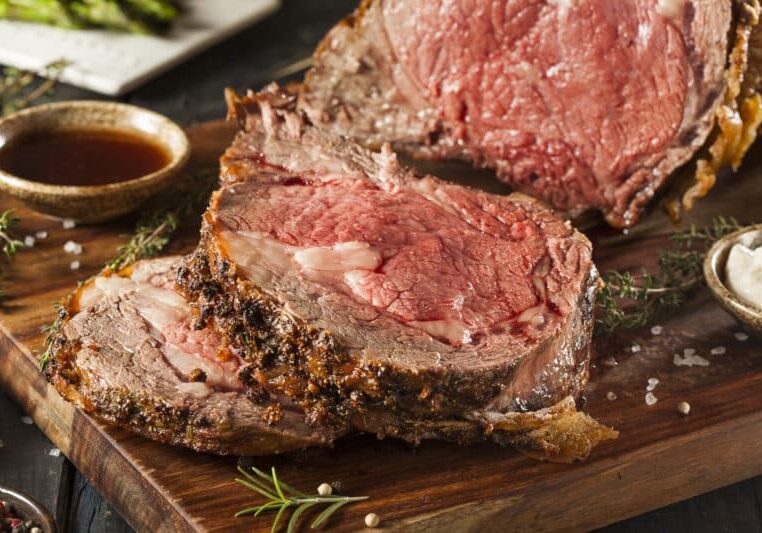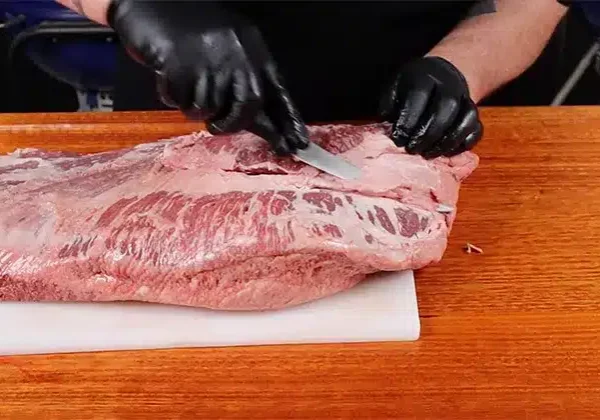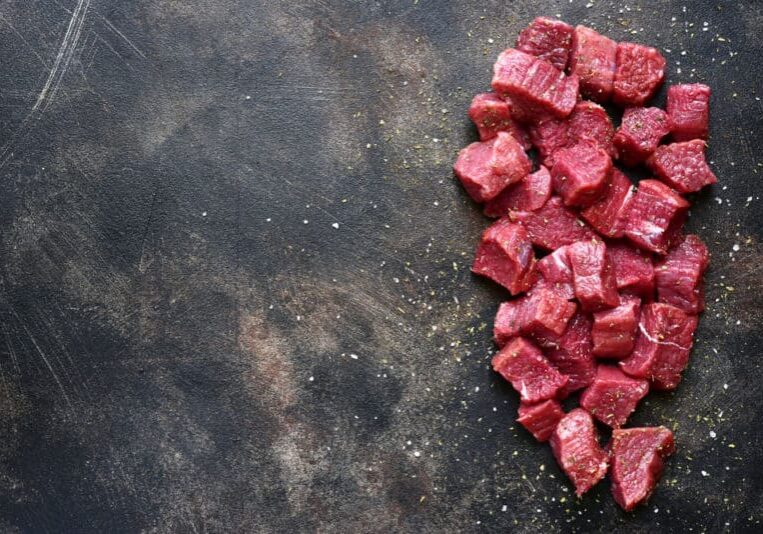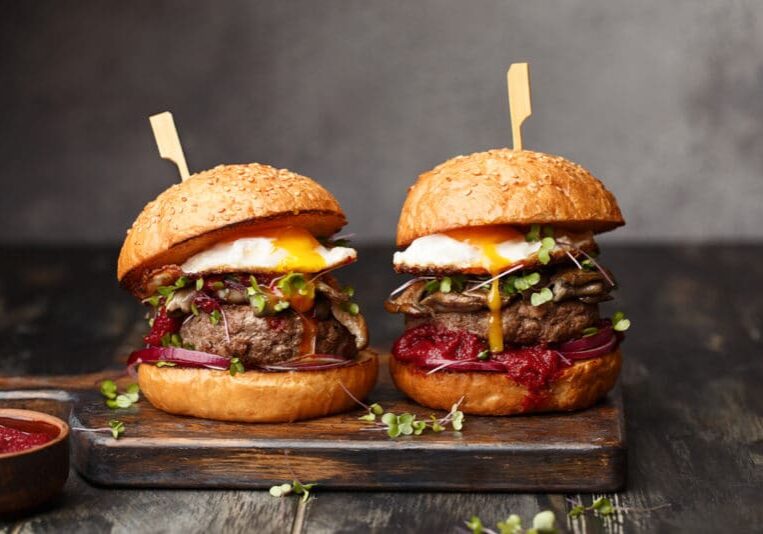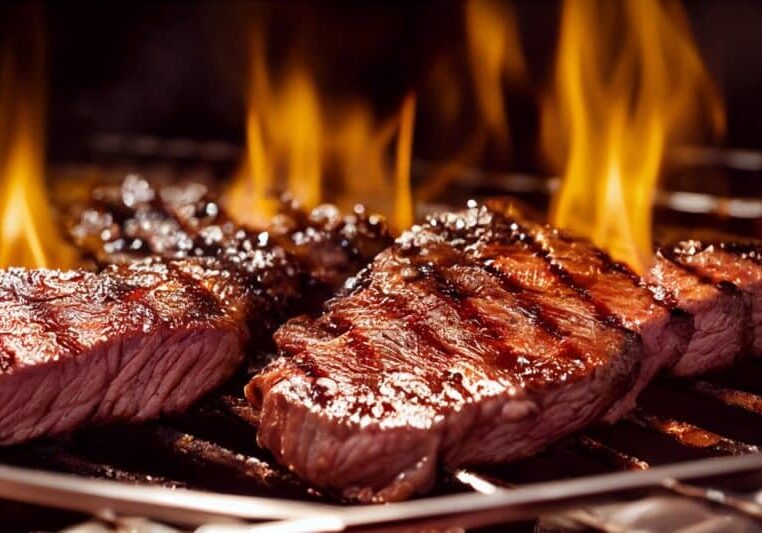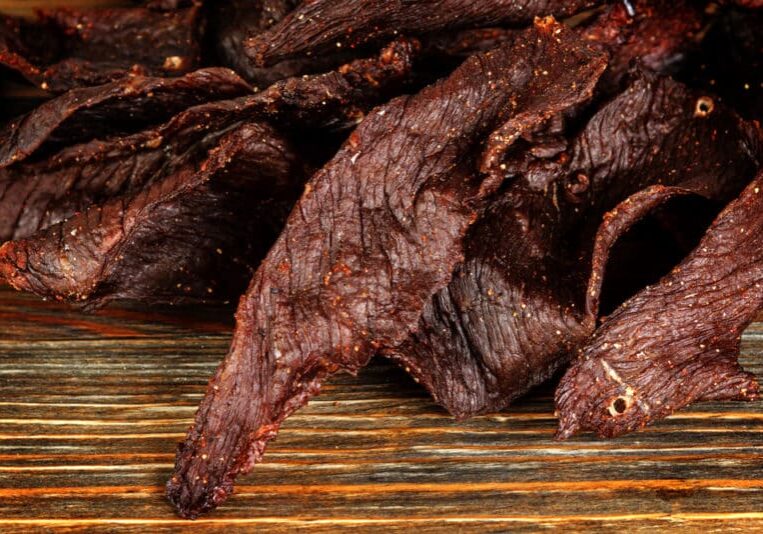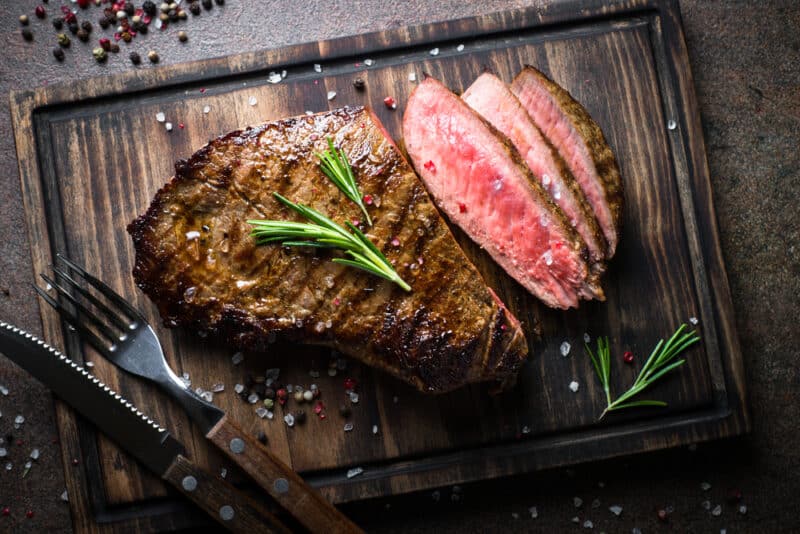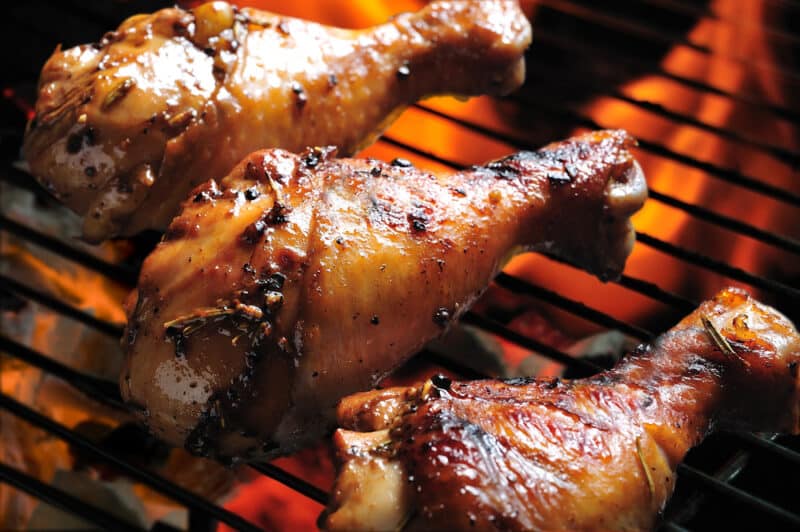Can You Refreeze Chicken? A Comprehensive Guide
TheGrillingMaster.com is reader-supported. If you buy something using the links on our site, we might earn an affiliate commission at no added cost to you. This helps us pay our staff to keep making awesome content for you!
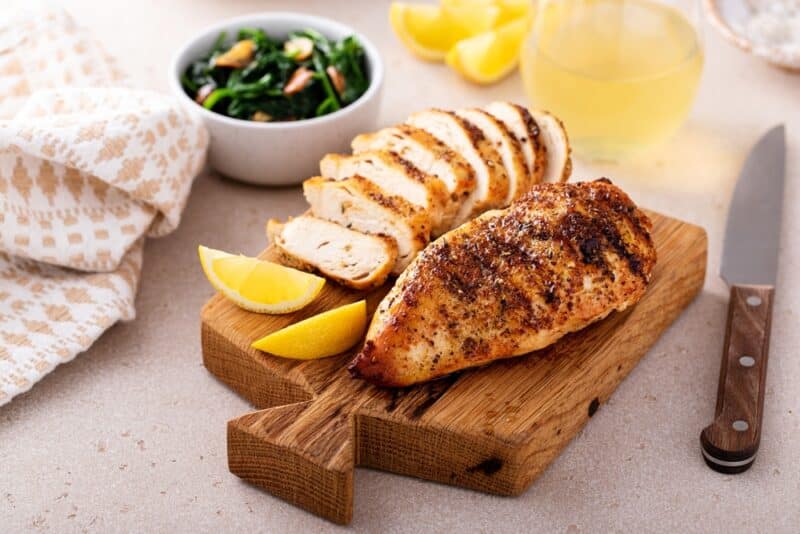
The question “Can you refreeze chicken?” is one that many home cooks and food enthusiasts grapple with. Ensuring the safety and quality of our food is paramount, especially when it comes to poultry, which can be susceptible to bacterial growth.
The straightforward answer is yes, you can refreeze chicken, but it comes with certain conditions and considerations to ensure both safety and taste. This article delves into the science, risks, and best practices of refreezing chicken, offering guidance on how to handle this common kitchen dilemma with confidence.
Risks of Refreezing Chicken
In my years of culinary experience, I’ve often encountered the debate about refreezing chicken. While it’s technically possible, there are undeniable risks associated with the practice that every cook should be aware of.
First and foremost, there’s the concern about bacterial growth. Every time chicken is thawed, it enters a temperature range where bacteria, especially harmful ones like Salmonella and Campylobacter, can multiply rapidly. If the chicken isn’t cooked immediately after thawing, and you decide to refreeze it, you’re essentially giving these bacteria another opportunity to grow when you thaw the chicken again. This repeated freeze-thaw cycle can increase the risk of foodborne illnesses.
Then there’s the issue of freezer burn. I’ve personally noticed that chicken that’s been frozen, thawed, and then refrozen tends to develop freezer burn more easily. This happens because the freezing process causes ice crystals to form within the chicken’s cells. When you thaw the chicken, these ice crystals melt, releasing moisture. Refreezing the chicken causes even larger ice crystals to form, which can rupture the chicken’s cell walls. The result? A piece of chicken that’s dry and has a slightly off texture. It’s not the juicy, tender bite you were hoping for.
Lastly, there’s the matter of nutrient loss. While chicken is a great source of protein, vitamins, and minerals, the freeze-thaw-refreeze process can degrade some of these nutrients. This means that refrozen chicken might not be as nutritionally rich as chicken that’s been frozen just once.
In my kitchen, I always prioritize safety and quality. While refreezing chicken is possible, it’s essential to weigh the risks against the benefits. Sometimes, it might be better to cook the thawed chicken and then freeze the cooked product, or find other ways to utilize it without refreezing.
Safe Practices for Thawing Chicken
Thawing might seem like a simple process, but doing it right can make a world of difference in both safety and flavor.
Starting with the safest method, I always recommend refrigerator thawing. This method involves placing the frozen chicken in the fridge and allowing it to thaw slowly over several hours or even days, depending on the size. What I love about this method is that it keeps the chicken at a safe temperature, minimizing the risk of bacterial growth. It requires a bit of foresight, as you’ll need to plan ahead, but the peace of mind it offers is worth it.
If I’m in a bit of a time crunch, I might opt for cold water thawing. This involves submerging the chicken (still in its airtight packaging) in cold water and changing the water every 30 minutes to ensure it remains cold. It’s faster than refrigerator thawing, but it does demand attention. You can’t just leave the chicken in water and forget about it; regular water changes are essential to maintain safety.
There’s also microwave thawing, which I resort to only when I’m really pressed for time. Microwaves can thaw chicken quickly, but they can also partially cook the meat if you’re not careful. If you choose this method, it’s vital to cook the chicken immediately after thawing to prevent any bacterial growth. And a word of caution: microwaving can sometimes lead to uneven thawing, with some parts still frozen while others are warm.
I’ve realized that understanding the nuances of thawing is key. It’s not just about getting the chicken ready for cooking; it’s about ensuring that what ends up on the plate is both delicious and safe to eat.
Also keep in mind that when working with raw chicken you cannot let it sit out too long.
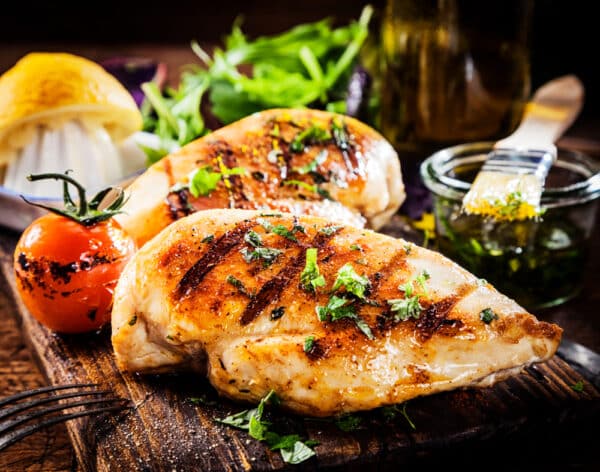
When is it Safe to Refreeze?
I’ve often been faced with the dilemma of whether or not to refreeze chicken. It’s a common scenario: you thaw more chicken than you need, and now you’re left wondering if it’s safe to put it back in the freezer. Here’s what I’ve learned.
If the chicken has been thawed in the refrigerator, it’s generally safe to refreeze it within a day or two. The refrigerator provides a controlled environment where the chicken remains at a safe temperature, reducing the risk of bacterial growth. I’ve done this on numerous occasions, especially when I’ve overestimated the amount of chicken needed for a recipe.
However, the clock starts ticking faster if you’ve used other thawing methods. For instance, if you’ve thawed chicken in cold water, it’s best to cook it right away. But if you must refreeze it, ensure it hasn’t been left out for more than a couple of hours. The same goes for microwave-thawed chicken; it should ideally be cooked immediately after thawing. If you’re thinking of refreezing it, you should be extra cautious.
There are also some telltale signs that chicken should not be refrozen. If the chicken has an off odor, appears slimy, or has changed color, it’s a clear indication that it’s past its prime. In these cases, it’s better to err on the side of caution and discard the chicken.
In my experience, the key to refreezing chicken safely lies in being observant and understanding the conditions under which the chicken was thawed. While it’s always tempting to save and reuse ingredients, it’s essential to prioritize safety. After all, the health and well-being of those we cook for are of the utmost importance.
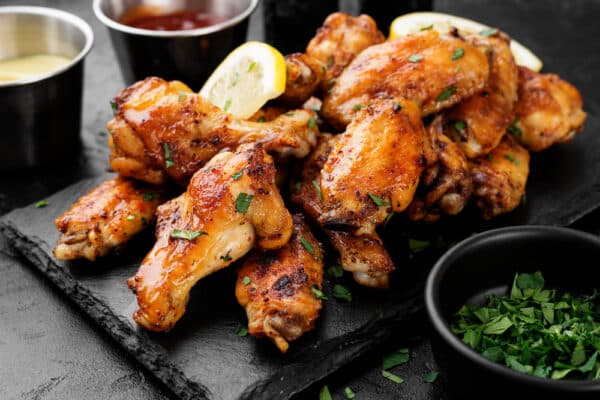
Tips for Refreezing Chicken Safely
While it’s not always the ideal choice, there are times when it’s necessary. Over the years, I’ve picked up a few tricks to ensure that when I do refreeze chicken, I do it safely and with minimal impact on quality.
Firstly, before even considering refreezing, I always make sure the chicken is cold. Refreezing chicken that’s reached room temperature or has been out for an extended period is a recipe for disaster. By ensuring the chicken is cold, I reduce the risk of bacterial growth and potential foodborne illnesses.
Packaging is another crucial aspect. I’ve found that using airtight packaging or vacuum sealing the chicken can make a significant difference. This not only prevents freezer burn but also helps retain the chicken’s moisture and flavor. Whenever I vacuum seal, I’m always amazed at how much fresher the chicken tastes when I eventually use it.
Labeling is a step I never skip. By marking packages with the date of the initial freeze and the refreeze, I can keep track of the chicken’s freshness. This simple habit has saved me from using chicken that’s been in the freezer for too long and has potentially deteriorated in quality.
Another tip I swear by is to lay the chicken flat while refreezing. This ensures it freezes quickly, reducing the formation of large ice crystals that can damage the meat’s cellular structure.
Lastly, I always remind myself to be realistic. If I believe the chicken has been compromised in any way, whether by being thawed for too long or showing signs of spoilage, I won’t refreeze it. It’s a principle I stand by: when in doubt, throw it out.
In the end, while refreezing chicken might not be the first choice for many, with the right precautions, it can be done safely without compromising too much on quality.
Quality Implications of Refreezing
I’ve always been a stickler for quality. The texture, flavor, and juiciness of chicken play a pivotal role in the outcome of any dish. And I’ve noticed that refreezing chicken can have some undeniable effects on these aspects.
One of the first things I observed was the change in texture. Chicken that’s been frozen, thawed, and then refrozen tends to lose some of its natural tenderness. This is because the freeze-thaw-refreeze cycle causes larger ice crystals to form within the meat, damaging its cellular structure. The result is chicken that can sometimes feel a bit grainier or drier than its once-frozen counterpart.
Flavor, too, can be impacted. While chicken is versatile and can absorb the flavors of marinades and seasonings beautifully, refrozen chicken sometimes has a slightly muted taste. I believe this is due to the moisture loss during the thawing process, which can dilute the inherent flavors of the chicken.
Then there’s the matter of juiciness. A succulent piece of chicken is a joy to eat, but refreezing can compromise this juiciness. As the chicken loses moisture through the repeated freeze-thaw cycles, it can end up drier when cooked. This is especially noticeable in methods like grilling or roasting, where the moisture retention is crucial for a juicy outcome.
However, all is not lost. Over the years, I’ve found ways to work around these challenges. For instance, brining or marinating refrozen chicken can help reintroduce some moisture and flavor. Slow-cooking methods, like braising, can also mitigate the effects of texture changes, rendering the chicken tender once more.
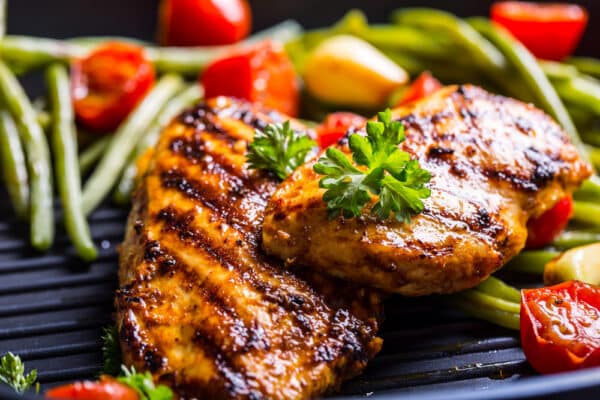
Alternatives to Refreezing
One of my go-to strategies is to cook the thawed chicken and then freeze the cooked product. This approach has multiple benefits. Firstly, cooking kills any bacteria that might have started to grow during the thawing process. Secondly, cooked chicken, when stored correctly, can retain its flavor and texture quite well upon reheating. Whether it’s grilled chicken slices, roasted drumsticks, or even a chicken curry, I’ve found that these dishes can be frozen and enjoyed later with minimal loss in quality.
Another favorite trick of mine is to transform the chicken into a broth or stock. There’s something incredibly satisfying about simmering chicken with herbs, spices, and vegetables to create a rich and flavorful broth. Not only does this method utilize the chicken, but it also provides a versatile base for numerous dishes in the future. Once prepared, I pour the broth into ice cube trays or freezer-safe containers, ensuring I have a ready-to-use stock for soups, stews, and sauces.
For those who enjoy meal prepping, thawed chicken offers a perfect opportunity. I often use it to prepare a variety of dishes, from stir-fries to casseroles, which I then portion out and freeze. This approach not only saves the chicken from being wasted but also provides convenient meals for busy days.
In essence, while the dilemma of what to do with thawed chicken can be daunting, it’s also an opportunity to get creative in the kitchen. Instead of seeing it as a challenge, I view it as a chance to experiment, innovate, and, most importantly, savor the joys of cooking
Learn More About Grilling
If you want to learn more about grilling, check out these other helpful resources!

Kevin Turner
Hi there, I'm Kevin Turner, Founder and CEO of thegrillingmaster.com. I started this website to share my passion and knowledge with you. You can leverage my years of experience as a pit master and professional to grill great food!
About The Grilling Master
Hi there, I'm Kevin Turner, Founder and CEO of thegrillingmaster.com.
My passion has always been grilling, smoking and BBQ delicious meats that satisfy my inner carnivore!
I started this website to share my passion and knowledge with you, the hungry reader who wants to prepare the perfect meal.
You can leverage my years of experience as a pit master and professional.
Send me a message and let's connect on Twitter here.


